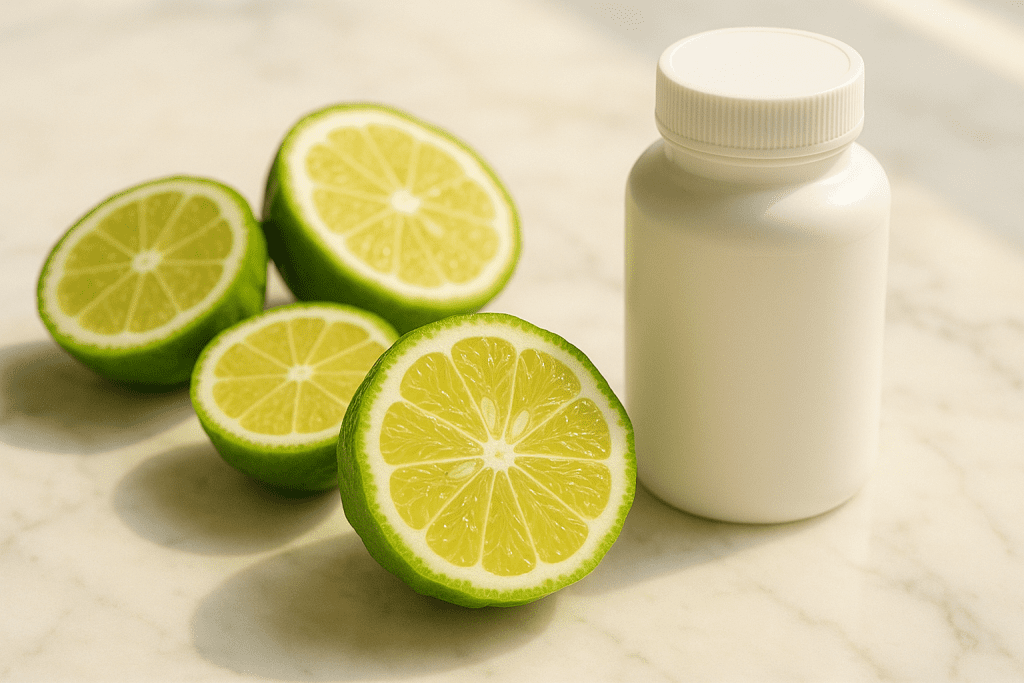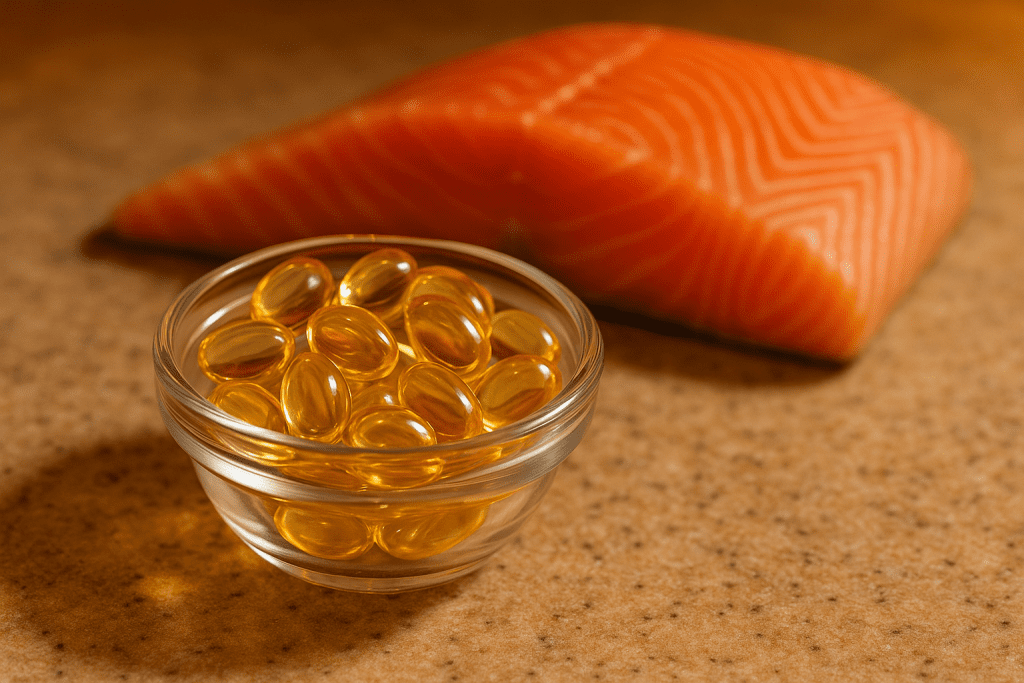Heart health supplements can help manage cholesterol, support healthy blood pressure, and improve overall cardiovascular function when chosen wisely. This guide reviews six clinically-proven ingredients – CoQ10, omega-3 fatty acids, magnesium, plant sterols, berberine, and citrus bergamot – and explains how they work, how to take them, and what to watch for with medications.
You’ll also find research-backed timing strategies and combination tips to maximize benefits while staying safe.
Summary / Quick Answer
For optimal cardiovascular support, research points to six key heart health supplements:
- CoQ10 – supports heart energy production and counters statin side effects
- Omega-3 fatty acids – lower triglycerides and reduce inflammation
- Magnesium – aids vascular relaxation and blood pressure control
- Plant sterols – block cholesterol absorption in the gut
- Berberine – improves cholesterol and blood sugar balance
- Citrus bergamot – lowers LDL while raising HDL cholesterol
Take fat-soluble supplements (CoQ10, bergamot) with meals, plant sterols only with food, and berberine before meals. Always check for interactions if you use statins, blood thinners, or blood pressure medications.
CoQ10: Energy and Protection for the Heart

CoQ10 is a natural compound found in every cell, but especially concentrated in the heart. It helps generate ATP in mitochondria, protecting cells from oxidative stress and keeping cardiac muscle strong. Clinical trials, including the Q-SYMBIO study, found 300 mg daily reduced cardiovascular deaths by over 50% in heart failure patients. Statin users benefit from CoQ10 as these drugs can lower natural CoQ10 levels.
Dosage: 100–300 mg/day, divided with meals containing fat.
Tip: See CoQ10 and Statins to understand why pairing them matters.
Omega-3 Fatty Acids: Triglyceride and Rhythm Support
Omega-3s from fish oil (EPA and DHA) reduce inflammation, improve cell membrane flexibility, and help stabilize heart rhythm. High-dose EPA in the REDUCE-IT trial lowered major cardiovascular events by 25%. They are particularly effective at reducing triglycerides by up to 50%.
Dosage: 1–4 g/day depending on risk level and triglyceride targets.
Tip: For supplement options, read Best Omega-3 Supplements. Take with food to reduce fishy aftertaste and improve absorption.
Magnesium: Blood Pressure and Vessel Health
Magnesium regulates vascular tone, supports normal heart rhythm, and aids over 300 enzymatic processes. Higher intakes are linked with reduced cardiovascular mortality. Daily supplementation can reduce blood pressure by 2–6 mmHg, especially in people with hypertension.
Dosage: 200–600 mg/day, ideally in glycinate or citrate form.
Tip: Learn more in Magnesium for Heart Health. Evening doses may also support better sleep.
Plant Sterols: Blocking Cholesterol at the Source
Plant sterols and stanols naturally resemble cholesterol, competing for absorption in the intestines. Taking 1.5–3 g/day can lower LDL cholesterol by 6–12% in just weeks.
Dosage: 2 g/day, always with main meals for best effect.
Tip: Best for people with mild to moderate LDL elevations or as an add-on to medication therapy.
Berberine: Cholesterol and Blood Sugar Control
Berberine, an alkaloid from plants like barberry, activates AMPK, a metabolic regulator that improves glucose handling and lipid metabolism. Studies show LDL reductions of up to 35% and triglyceride drops up to 50%.
Dosage: 500 mg two to three times daily, 30–60 minutes before meals.
Tip: Compare with metformin in Berberine vs. Metformin. Can be paired with statins for added cholesterol lowering.
Citrus Bergamot: A Natural Cholesterol Balancer
Citrus bergamot contains flavonoids that inhibit cholesterol synthesis and improve HDL-to-LDL ratios. Clinical trials show LDL drops of 20–30% with doses of 500–1000 mg/day.
Dosage: 500–1000 mg/day, preferably on an empty stomach before meals.
Tip: Works well with plant sterols for a two-pronged cholesterol strategy.
Combining Supplements Safely

Some combinations work better together:
- CoQ10 + vitamin E for antioxidant protection
- Omega-3 + vitamin E to prevent oxidation
- Berberine + statins for greater LDL reduction
- Bergamot + plant sterols for synthesis + absorption blocking
However, some mixes require caution:
- CoQ10 and warfarin may reduce anticoagulant effect
- Omega-3 over 3 g/day may increase bleeding risk
- Magnesium should be spaced from antibiotics or thyroid meds
See Heart Supplements and Medications for a full interaction checklist.
How to Start and Monitor
- Begin with one or two supplements based on your top priorities (cholesterol, blood pressure, energy).
- Introduce others gradually, monitoring lipid panels and blood pressure.
- Adjust doses after 6–12 weeks based on results.
- Keep regular check-ins with your healthcare provider, especially if on prescription medications.
Conclusion
The right heart health supplements can complement medical therapy, helping manage cholesterol, blood pressure, and overall cardiovascular performance. CoQ10, omega-3s, magnesium, plant sterols, berberine, and citrus bergamot each have distinct benefits supported by clinical research. With careful timing, quality sourcing, and interaction awareness, they can be a powerful part of your long-term heart health plan.


